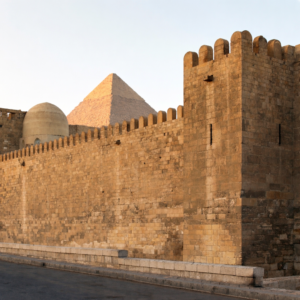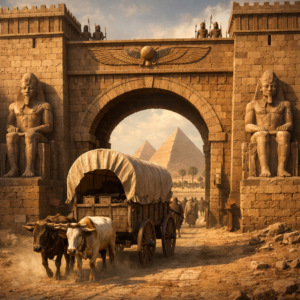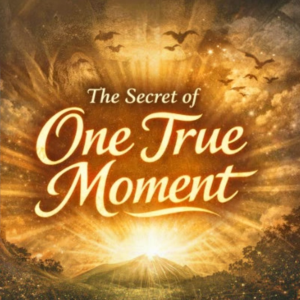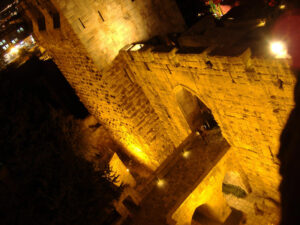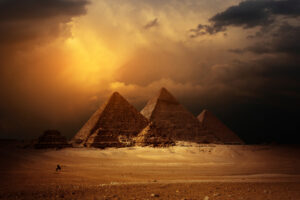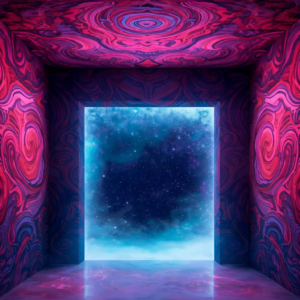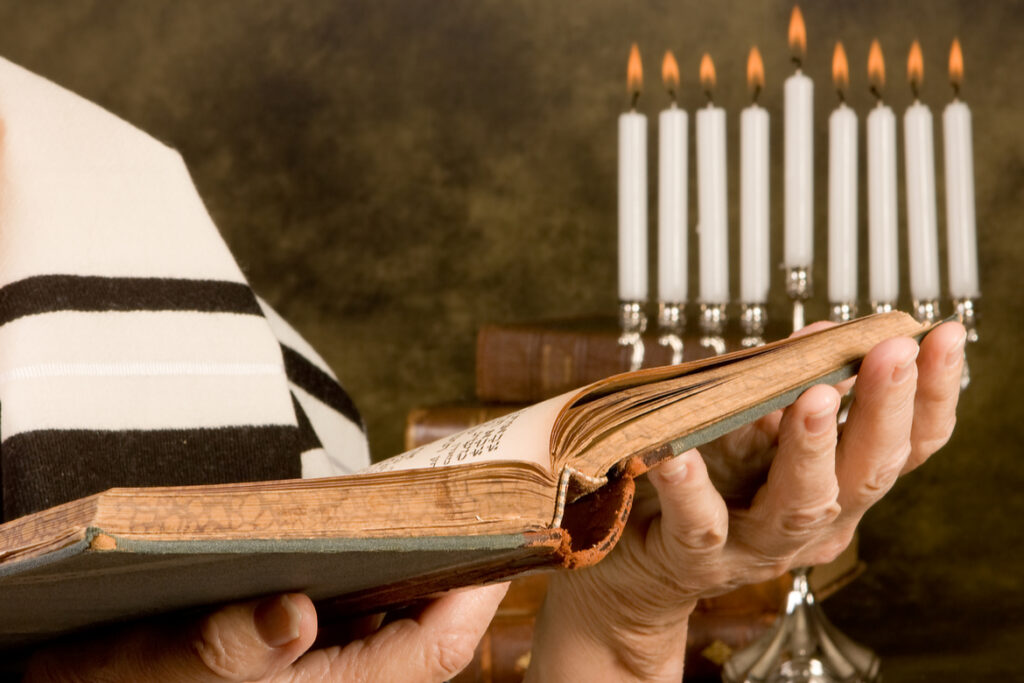- Advice ⬦ Faith ⬦ Read ⬦ Shabbat ⬦ Weekly Torah Portion
A Unanimous Ruling: Objection Dismissed – Parshat Devarim
How do we silence the prosecutor who tries to undermine us and take what we have attained from us? What is the connection between the main theme of this week’s Torah portion, Moses’ rebuke to the Nation of Israel before his death, the way to the Land of Israel and Tisha B’Av? These are the topics that our weekly parsha discussion will address.
This coming Shabbat we begin reading the final book of the five books of the Torah, Deuteronomy. This week’s parsha is called “Devarim.” The central theme of this parsha is the rebuke that Moses gave to the Nation of Israel before his death.
This Shabbat is called “Shabbat Chazon” (“the Shabbat of the prophetic vision”) after the Haftarah which is referred to as “Chazon Yeshayahu” (the prophet Yeshaya’s prophetic vision), which was a prophesy regarding the destruction of Jerusalem which is read on the Shabbat before Tisha B’Av. The Torah portion “Devarim” is usually the parsha which is read on the Shabbat before Tisha B’Av. There is an interesting connection between this parsha, which is read right before Tisha B’Av, and Moses’ rebuke which recalls at length the behavior of the Nation of Israel throughout their journey in the wilderness, pointing out how they themselves were the cause of their not being allowed to enter the Land of Israel.
To do this, let us look at one of Rabbi Nachman’s wondrous teachings: The Torah is the source of our life, as it is written: “For it is your life and the length of your days” (Deuteronomy 30:20). The holy Zohar explains it thus: “One who separates himself from the Torah is likened to one who withdraws from life” (Zohar: Lech Lecha, page 92). Since we know that all the vitality a person receives is from the Torah, it is therefore fitting that a person be bound to the Torah 24/7 without any interruption. And yet it is not realistic for a person to engage himself in learning Torah without any interruptions as a person needs to eat, sleep, earn a living, and so on. It doesn’t matter what level a person is on, even if he is the greatest Tzaddik—there are times when every person must stop studying Torah. So, from where does a person get his vitality when he is not engaged in learning Torah, and how can a person separate himself from the source of his vitality for even one moment?
The answer is, according to this teaching of Rabbi Nachman, that at the moment that the Tzaddik stops being involved with Torah, he receives his vitality from the “Treasury of Free Gifts.” Since without Torah or the mitzvot, we have no merit to exist at all, G-d, in His goodness, bestowed life and existence to the world as a free gift from the “Treasury of Free Gifts” for the twenty-six generations before the giving of Torah. Even now, after the giving of the Torah, a person is incapable of being attached to the Torah 24/7, and even the Tzaddik is sometimes forced to detach himself from the Torah. At such a time, he becomes a kind of “simple person,” and receives from the same “Treasury of Free Gifts” from which G-d, in His goodness, bestowed life and existence to the world before the Torah was given.
The “Treasury of Free Gifts” was created for the Tzaddik. G-d certainly did not designate it for evildoers, and for what possible reason could an evildoer benefit from it since he simply doesn’t have the merit to receive from it. It is clear then, that the treasury is dedicated for the Tzaddikim who are involved with Torah all the time. The problem is most people are unable to attach themselves to the Tzaddik because they cannot incessantly cling to the Torah, so the Tzaddik is also sometimes forced to take a break from clinging to the Torah. He then takes on the persona of a simple person thereby becoming more connected to the simple people around him who do not cling to the Torah. He can then draw down vitality to them, keeping them alive, by receiving from the “Treasury of Free Gifts,” and passing the vitality he receives to all those who cannot continually be bound to the Torah. Everyone without exception, even Torah scholars who are engaged in learning Torah, is forced to stop studying from time to time. This includes those kosher and G-d fearing people who are unable to study and also those who are not connected to the Torah at all. It even includes the nations of the world. All of them, without exception, receive their vitality via the Tzaddik who receives from the “Treasury of Free Gifts” at the time that he is prevented from engaging in Torah study. Each one, according to his connection to the Torah and to the Tzaddik, receives his vitality accordingly from the same treasury.
It doesn’t matter what level a person is on, even if he is the greatest Tzaddik—there are times when every person must stop studying Torah. So, from where does a person get his vitality when he is not engaged in learning Torah?
As it is taught, even after the Torah had been given, when one is forced to detach from it, it is considered as if he was living in the era before the giving of Torah, when the world existed by the goodness and grace of G-d. However, one cannot say that the Torah absolutely did not exist before it was given, since the Torah is eternal. It is clear, then, that it existed even before it was given, just that it was hidden and concealed. That is, the entire Torah was included in the “Ten Commandments” (Zohar, Part 2, 93:2), and before the giving of the Torah, the Ten Commandments were hidden and encrypted within the “Ten Sayings” with which the world was created. The “Ten Sayings” refer to the word
“va’yomer” (“[G-d] said”) which appears ten times at the beginning of the account of the Creation. For example: “And God said, ‘Let there be light’” (Genesis 1:3). Altogether, there are “Ten Sayings” (see also Likutei Moharan II, 12). The significance of this is that the entire creation and all of the actions and work that the people engage in—that which our sages refer to as “derech eretz,” which is to be engaged in settling the world—all are included in the ten sayings. In a hidden and concealed way, the Torah gives life to absolutely everything and in the world.
Rabbi Nachman continues by connecting the settling of the world, “derech eretz” which is included in the Ten Sayings, to the revealing of the holiness of the Land of Israel. He calls it: “The path to the Land of Israel.” He learns this from the fact that the Torah begins with the story of creation: “Bereishit (‘in the beginning’) God created Heaven and earth” (Genesis 1:1). The Midrash teaches: “Rabbi Isaac said: It was not necessary to begin the Torah except from “This month is to you,” (Exodus 12:2) which is the first commandment that the Israelites were commanded. Now for what reason did He commence with “In the beginning” (“Bereishit”)? Because of [the verse] “The strength of His works He related to His people, to give them the inheritance of the nations” (Ps. 111:6). For if the nations of the world should say to Israel, “You are robbers, for you conquered by force the lands of the seven nations [of Canaan],” they will reply, “The entire earth belongs to the Holy One, blessed be He; He created it (this we learn from the story of the Creation) and gave it to whomever He deemed proper. When He wished, He gave it to them, and when He wished, He took it away from them and gave it to us.” (Rashi on Genesis 1:1; Yalkut Shemot, Remez 187).
Rabbi Nachman learns from this midrash that the power of the Ten Sayings by which the world was created is called “the power of His deeds,” because it publicizes and informs the whole world that G-d created the world with Ten Sayings, thus nullifying the claim of the nations of the world that the land of Israel was first of all in their hands and therefore now belongs to them. For, once it is revealed that it was G-d Who created the world, the phrase is now understandable: “When He wished, He gave it to them, and when He wished, He took it away from them and gave it to us.”
However, Rabbi Nachman adds that this concept does not concern only the Land of Israel; it actually applies to the whole world: “Also here outside of Israel, this principle applies, because the holy nation of Israel will sometimes find themselves in lands that are completely devoid of holiness. By conquering the land, they thereby sanctify it by make it Jewish land, and it takes on the aspect of the Land of Israel. It would be possible for them to claim ‘you are thieves’ for conquering a land that doesn’t belong to you. However, by the power of His deeds, in the aspect of the ‘Ten Sayings,’ we have permission to conquer the whole world and to sanctify it with the holiness of Israel, seeing that it was G-d Himself who created it all, and it is His desire that He should give it to us.”
Take America, for example. It does not belong to the Jewish people, who settled there only a few hundred years ago. But now there are Jewish communities there which are flourishing and thriving, and one could make an argument that: “You are turning America into a Jewish country, yet this place is not yours!” Despite this, Rabbi Nachman teaches, when we reveal the “power of his deeds,” the belief in the Creator who created everything with the Ten Sayings, we have the power to conquer every land, not only the Land of Israel, but each and every land, and to create a revelation of the power of the holiness of the Land of Israel and to draw the aspect of the Land of Israel even to America!
(By the way, I was in California this summer, in a suburb of Los Angeles called the “Valley Village.” There is a large community of Israelis who unfortunately left Israel to settle in America. There was a headline in the local Israeli newspaper there: “We are here in America.” It is a pity that was meant in a negative sense, referring to people settling down permanently in America without any real purpose. They could have looked at it in a positive sense: “We are here in the Land of Israel in America!”)

This all depends on the power of the Tzaddik who receives from the “Treasury of Free Gifts” and passes abundance down to us even when we are not connected to the Torah
Rabbi Natan expands the idea even further and applies it to every area of life. He teaches: “All manifestations of damage such as: thefts, robberies, and natural disasters which are beyond our control, etc., originate in the ‘Sitra Achra’ (the forces of impurity of the Dark Side), which are known as “klipot” (literally, “husks”). As is known, the husk or peel comes before the fruit inside. Just as the peel surrounds and protects the fruit, so too will the abundance of holiness inevitably exit via the ‘klippot.’” As Rabbi Nachman explains, “the abundance that comes into the world comes via the sheidim (demons)” (Likutei Moharan II, 5). The reason for this is it enables the power of free choice (as explained in the writings of the Ariza”l). Therefore, man is required to clarify and understand everything according to the Torah in order to free it from the control of the “klippot.” The Sitra Achra also makes its familiar claim, “you robbed us,” in the same way that the peel preceded the fruit, they preceded us, and when we want to draw down the abundance for ourselves, they revolt and voice their opposition: “It does not belong to you.” And this is the cause of all kinds of damage that occurs in the world.
The antidote to this is the protection of the Holy Torah. The Torah symbolizes faith, as it is written: “All your commandments are faith.” Through the Torah, the holy faith—meaning that G-d created the whole world—is revealed, and since it was He Who created everything, the “klippot” have no right to claim that the abundance belongs to them. This is precisely our answer to claims about the Land of Israel, that at first it was in the hands of Canaan, and then the Creator “when He wished, He took it away from them and gave it to us.” Here too the answer is the same. By the power of the Torah, we reveal the holy faith in everything, and even if at first it was by them, the fact remains that He created everything for us. “When He wished, He gave to them, and when he wished, He gave to us.” It is our right to receive the abundance without objection.
However, as we quoted Rabbi Nachman at the beginning of the article, not everyone can be bound to the Torah all the time, especially the simple people, and certainly those who are very far from the Torah. The only way to protect oneself from damage is through the Torah which reveals the faith in the Creator of the world and annuls the power of the klipot to do damage. Where will those who are far from the Torah find protection from damage? The answer is that when the Tzaddik is forced to withdraw from the Torah, temporarily becoming a “simple person,” he enlivens himself from the “Treasury of Free Gifts,” which is equal to the revelation of the holiness of the Land of Israel. In our context, the Tzaddik draws down an enlightenment from the “Treasury of Free Gifts,” which originates in the hidden Torah of the Ten Sayings, and it is this that reveals the sanctity of the Land of Israel in the aforementioned aspect: “When He wished, He gave it to us. When He wished, He took it away from them and gave it to us.” With this power, the Tzaddik nullifies the merit of the destroyers and protects the Nation of Israel. Thus, the Tzaddik is considered a “shepherd” because he protects the people of Israel from the damagers.
Rabbi Natan connects these ideas to the days called “bein hamaitzarim” (literally, the “between the straits,” the first strait being the 17th of Tammuz and second strait being Tisha B’Av) during which we mourn the destruction of the Temple. Our sages taught that these days need protection from the forces of destruction. Rabbi Natan explains that when the Nation of Israel resides in their proper place in Israel, it is revealed that everything is according to G-d’s Will and that He gave us the Land of Israel, and then good influences are drawn down to the Nation of Israel. But when we are in the Diaspora and the Land of Israel is in the hands of the Sitra Achra as is happening today, when the Ishmaelites challenge our right in the Land of Israel, then we must reveal anew the “power of his deeds,” the path to Eretz Yisrael, so that everyone should know that G-d created the world, and then it will be revealed again that “When He wished, He gave it to them, and when He wished, He took it away from them and gave it to us.” And then we will be able to return to the Land of Israel and to the Temple.
In addition, during these days, we also mourn the fact that we are far from the Torah, which is what protects and preserves us. For exile means “out of place,” and it has two meanings: both the physical exile from our natural place, and also the exile of the mind, that the soul is “not in its proper place.” In exile, our Torah is not as it should be due to the harassment and sorrow we experience, and that is even when we are still somehow able to learn. What about all the people who because of the difficulty of earning a livelihood and other problems are not able to learn at all? It is clear then that we need to renew the “path to the Land of Israel” and receive again from the “Treasury of Free Gifts,” so that we will be able to be properly connected to the Torah. This all depends on the power of the Tzaddik who receives from the “Treasury of Free Gifts” and passes abundance down to us even when we are not connected to the Torah in order that we should be protected and reveal the “power of His deeds” and nullify the accusers.
Now let us return to our parsha and the question we asked about the connection between Moshe’s rebuke and the fact that the parsha is read right before Tisha B’Av? As stated, the way to the Land of Israel is through faith which reveals the “power of his deeds,” that G-d created the world, and He is the one that nullifies all the opposing forces. Moses reproved the Nation of Israel: “But regarding this matter, you do not believe the Lord, your God” (Deuteronomy 1:31). The lack of faith is what increases the cry of the opposition that “you are robbers,” and it is that which drove them away from the Land of Israel. This is the reason for the destruction of the First and Second Temples that we mourn for on Tisha B’Av. And this is what we need to correct in these days: to believe in G-d and reveal anew to the whole world that G-d created the world. And thus, we can unanimously reject the charge of “you are robbers.”
May we be worthy of a powerful faith that we will be able to reveal to the whole world that the G-d is the Creator and see very soon the consolation of Zion and Jerusalem, Amen.
(Based on Likutei Halachot, Shomer Sachar 4)
- bein hamaitzarimbetween the straitsbreslevBreslovderech eretzdevarimDiasporaDvar Torah for Parshat Devarimemunahfaithfaith in godFaith in the TzaddikimfeaturedFirst and Second TemplesJewishjudaismKlippotland of IsraelLikutey HalachotLikutey MoharanMoshe's rebukeparshat devarimpower of his deedsprosecutorReb NosonRebbe Nachmansimple personstory of the CreationTen SayingsThe Holy TempleTisha b’AvTorahTreasury of Free GiftsTzaddik
- 0 comment


